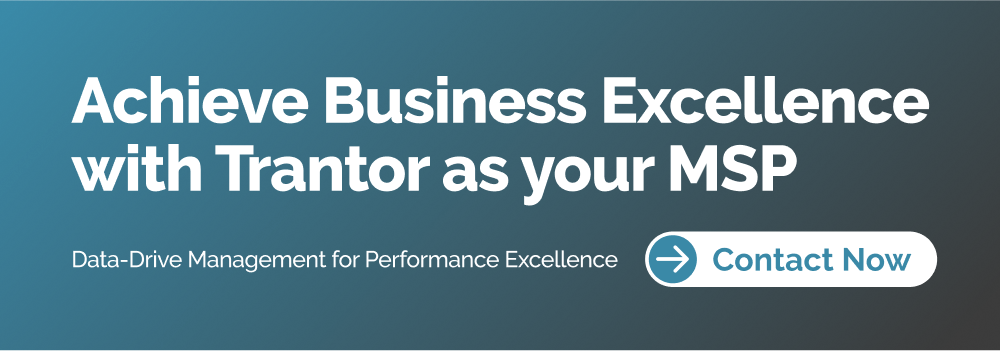Cloud, zBlog
The Future is Managed: Why Cloud Managed Services are Critical for Business Success
atif | Updated: December 1, 2023

Cloud Managed Services: An Introduction
We are witnessing a monumental shift in the world of enterprise IT. Businesses today operate in an environment of unprecedented complexity. Digital disruption, rapidly evolving technologies, cyber threats, skills gaps, and stringent regulations – organizations grapple with these challenges daily. And the turbulence shows no signs of abating. Against this backdrop, cloud managed services (CMS) have emerged as an invaluable strategy for enterprises seeking enhanced resiliency, efficiency, and innovation.
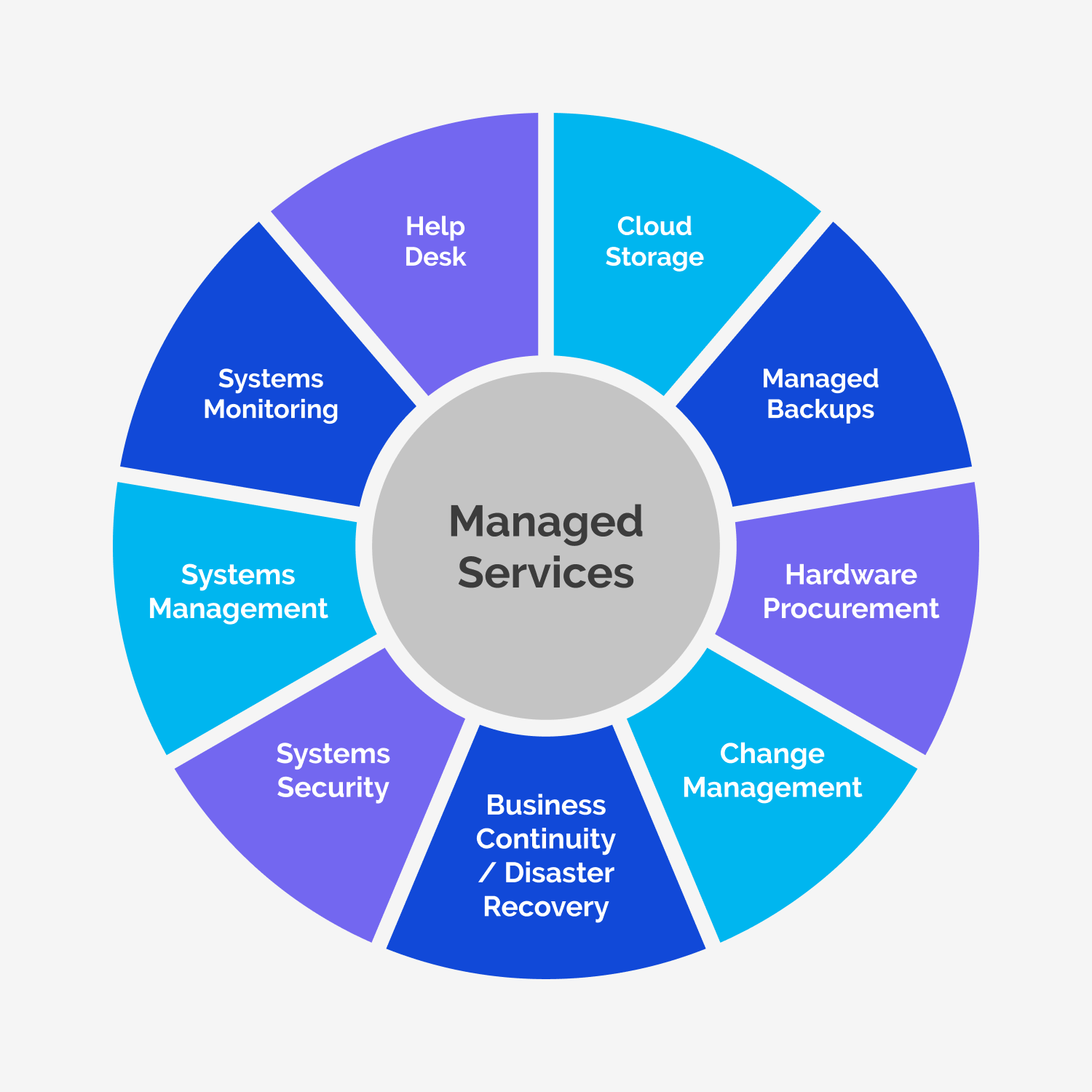
As per Gartner, the market for cloud managed services will catapult to $116 billion in 2024, underlining the growing relevance of CMS in steering business growth.
So what explains the meteoric rise of cloud managed services? This blog examines why CMS holds the key to smarter business operations and a sustained competitive edge.
The Winds of Change: What’s Driving CMS Adoption
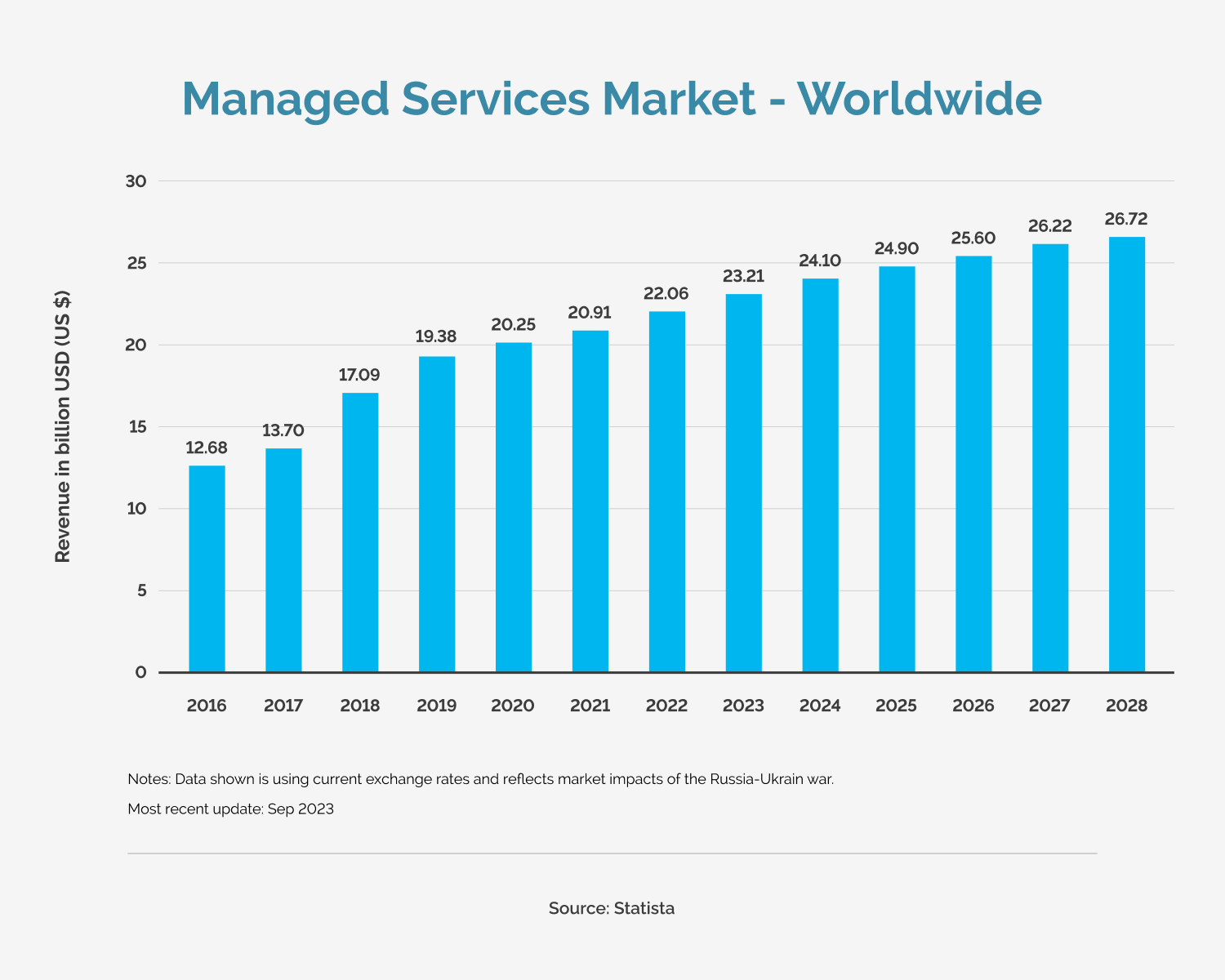
Volatile market conditions and breakneck technological changes have made agility and flexibility critical capabilities for enterprises worldwide. Cloud managed services enable organizations to rapidly adapt and respond to evolving business demands in an intensely competitive climate.
By delegating time-intensive infrastructure monitoring, maintenance, and updates to CMS providers, enterprises can sharpen their focus on high-value priorities aligned with long-term strategic objectives. Instead of grappling with mundane firewall updates or storage optimizations, stakeholders across the business can drive initiatives with far-reaching impacts on revenue, customer experience, and market leadership.
In addition, enterprises are recognizing expert CMS providers as invaluable partners in accelerating their digital transformation programs. Thanks to round-the-clock infrastructure vigilance and preventative maintenance, CMS alleviates many of the headaches associated with manual IT management. With CMS taking care of the heavy lifting, enterprises have the bandwidth to implement sophisticated technologies like Artificial Intelligence and Machine Learning, the Internet of Things, and advanced analytics more smoothly.
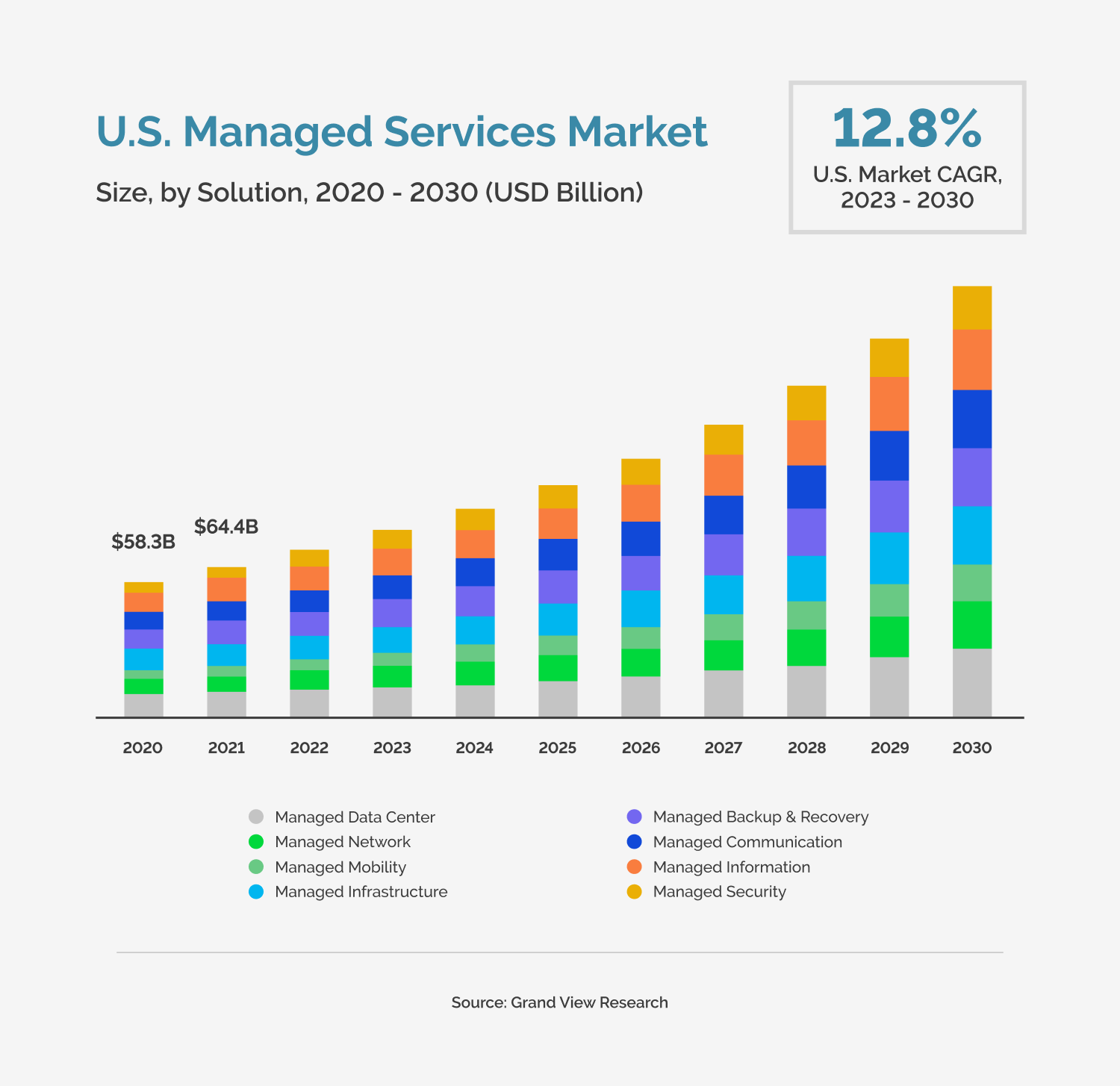
The scale, experience, and technological muscle that seasoned CMS providers bring to the table also enable access to enterprise-grade solutions otherwise out of reach for most businesses. For example, CMS can facilitate the adoption of bleeding-edge cybersecurity tools to bolster threat monitoring and mitigation capabilities. Such elevated security postures minimize risk exposure for organizations operating in highly regulated environments like Financial Services and Healthcare.
As disruptive technologies and security threats progressively inundate enterprise IT, CMS provides a lifeline through proven infrastructure management as well as a gateway to the most contemporary tech innovations.
The True Value of CMS: Key Benefits for Modern Enterprises
So apart from infrastructure offloading and accelerated transformation programs, how else do organizations benefit from embracing cloud managed services? What core advantages make CMS such an attractive and prudent investment?
- Reduced Costs
With experienced CMS taking over mundane upkeep operations, enterprises can trim exorbitant capital and operational expenses associated with legacy infrastructure management. Consolidating support contracts under a single CMS provider yields further cost optimizations. According to IDC research, migrating infrastructure to a public cloud managed service can reduce associated costs by nearly 50% over 5 years.
With expert tuning of usage patterns and resources from CMS teams, right-sizing initiatives drive further economies of scale by preventing overprovisioning or underutilization. Gartner estimates that nearly one-third of infrastructure spending is linked to wasted cloud resources due to sub-optimal visibility and management; problems easily alleviated under CMS.
In addition to direct infrastructure expense reductions, enterprises also mitigate indirect costs tied to talent acquisition, training, and retention when collaborating with CMS providers. Handing complex cloud stack administration to specialized external teams translates to lowered financial risk during economic uncertainty or sudden attrition spikes. - Enhanced Business Agility
With experienced CMS taking charge of turbulent infrastructure, enterprises can deftly respond to evolving customer expectations, shifting market dynamics, and new competitive threats. Unencumbered by mundane system updates or capacity planning, product teams can swiftly roll out differentiated offerings while marketing focuses on impactful campaigns that resonate with target audiences.
Such business agility and sharpened customer centricity is prerequisite for unlocking innovation and seizing ephemeral opportunities in the digital era. Gartner strongly advocates managed services as a fundamental building block for assembling nimble, cloud-powered “composable businesses” that continually morph in response to market signals and external enablers. - Bolstered Security
Cyberattacks represent one of the direst threats looming over modern enterprises. However, most organizations lack the specialized security skills needed for detection and response, especially against sophisticated threat vectors. In its 2022 Cloud Security Report, Google revealed that advanced persistent threat (APT) attacks increased by a staggering 650% in 2021!
Specialized CMS providers offer deep security expertise coupled with predictive techniques to pre-empt malicious exploits. Instead of playing “whack-a-mole” with threats, CMS simplifies the implementation of AI-based behavioral modeling and user analytics to pinpoint high-risk activities across cloud infrastructure. Such heightened threat visibility and control are unavailable to most enterprises relying on in-house security teams.
According to IBM, dedicated managed security services (MSS) reduce overall organizational risk by over 88% percent. Considering potential financial, legal, and reputational repercussions tied to data breaches, offloading security risk onto CMS represents substantial long-term value. - Optimal Uptime & Performance
Instead of waking IT admins at midnight to troubleshoot server crashes or latency spikes, partnering with CMS guarantees peace of mind through near 100% infrastructure availability and swift issue resolution. Seasoned CMS teams leverage extensive incident response experience coupled with automation to instantly restore failing components with negligible downtime.
Such resilience minimizes loss in productivity across business units while preserving brand reputation. For consumer-facing companies, maximizing application uptime directly strengthens customer satisfaction and loyalty. In its 2021 IT Trends Study, Enterprise Strategy Group (ESG) found that nearly 70% of technology decision-makers ranked reliability and uptime as the topmost priority while selecting managed service providers.
In addition to responsive incident management, expert CMS also continually fine-tunes infrastructure to maintain peak efficiency as usage patterns and data gravity evolve. Retiring redundant artifacts, reallocating cloud resources, and optimizing traffic routing are performed automatically in the background to deliver consistent performance aligned with workload priorities defined by the business.
For smooth daily operations and fulfilling always-on customer expectations, CMS represents the most prudent investment for the modern enterprise. - Access to Niche Capabilities
From mitigating cloud sticker shock to bolstering data durability, expert CMS unlocks niche capabilities otherwise unavailable to enterprises with finite IT skills and stretched in-house resources.
For example, savvy CMS advice can help structure cloud contracts that account for the wildcards of business growth. Unexpected public cloud cost overruns are environment are huge pain point; Flexera’s 2022 State of Cloud Report found that 20% of enterprises exceeded cloud budgets by over 50% in 2021. Experienced CMS consultants can model consumption spikes linked to new product launches, marketing campaigns, or unexpected surges in seasonal demand. With cloud budgets aligned to business plans through CMS inputs, nasty billing surprises can be avoided and cloud spend can be reduced..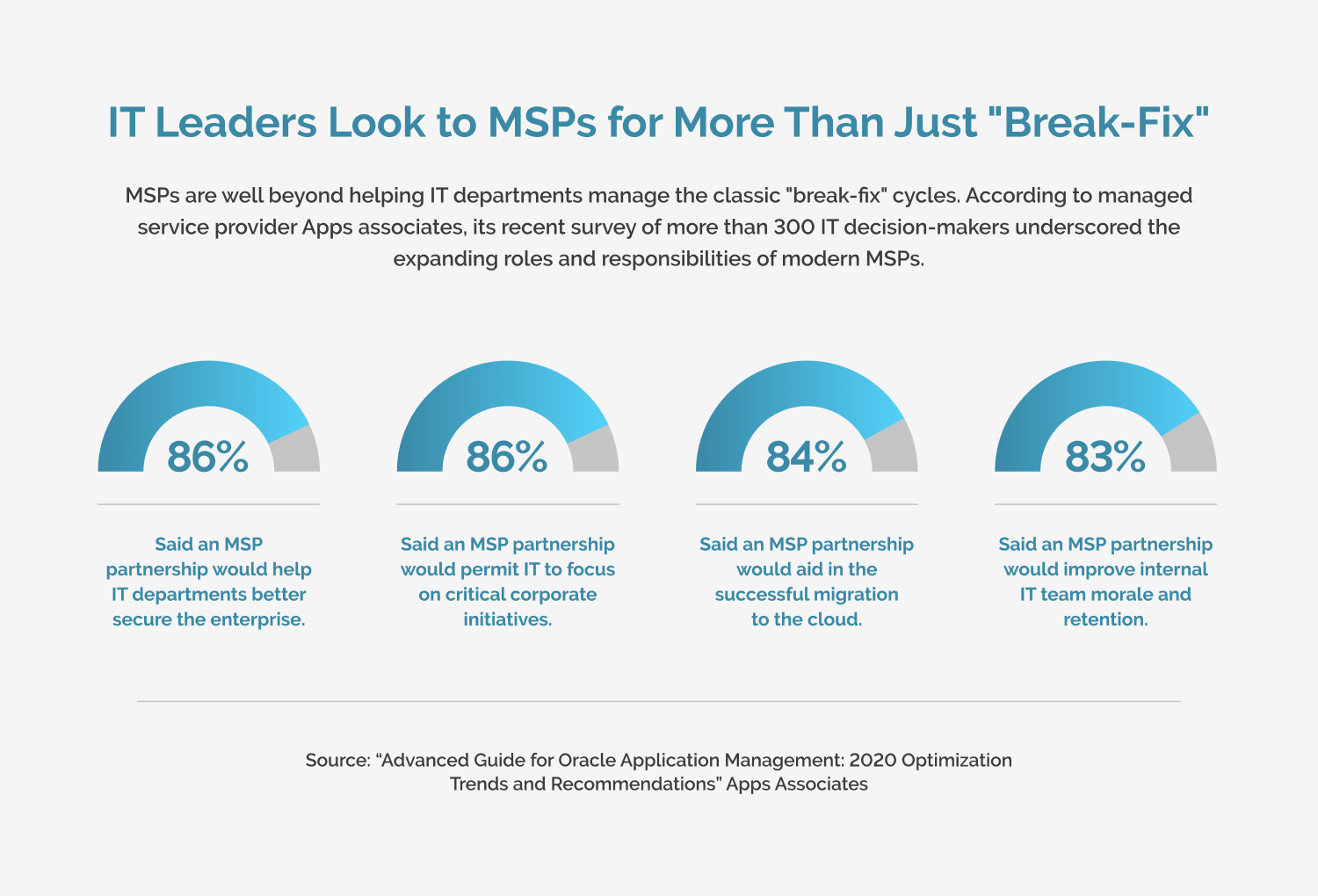 On the technology side, CMS facilitates the implementation of cutting-edge data persistence and analytics solutions to uncover actionable insights from operational workloads. Instead of risky in-house experimentation, CMS pilots bleeding edge infrastructure components across staging environments before certifying for production activation.
On the technology side, CMS facilitates the implementation of cutting-edge data persistence and analytics solutions to uncover actionable insights from operational workloads. Instead of risky in-house experimentation, CMS pilots bleeding edge infrastructure components across staging environments before certifying for production activation.
The niche expertise that CMS brings to the table in relevant emerging domains acts catalyst for value creation across technical and business functions within the enterprise.
In summary, a seasoned CMS partner serves as a trusted advisor and extension of the in-house IT team for navigating the turbulent waters ahead. With CMS at the helm, enterprises gain an invaluable competitive edge via sharper strategic focus, strengthened risk posture, superior access to innovation, and unmatched infrastructure expertise.
Realizing the CMS Dividend: Key Selection Criteria
Cloud managed services unlocked multidimensional benefits for enterprises upon the digital transformation journey. However, partnering with the right CMS provider is equally critical in harnessing the truly transformative potential managed services offer.
So what should technology leaders look for when evaluating CMS partners?
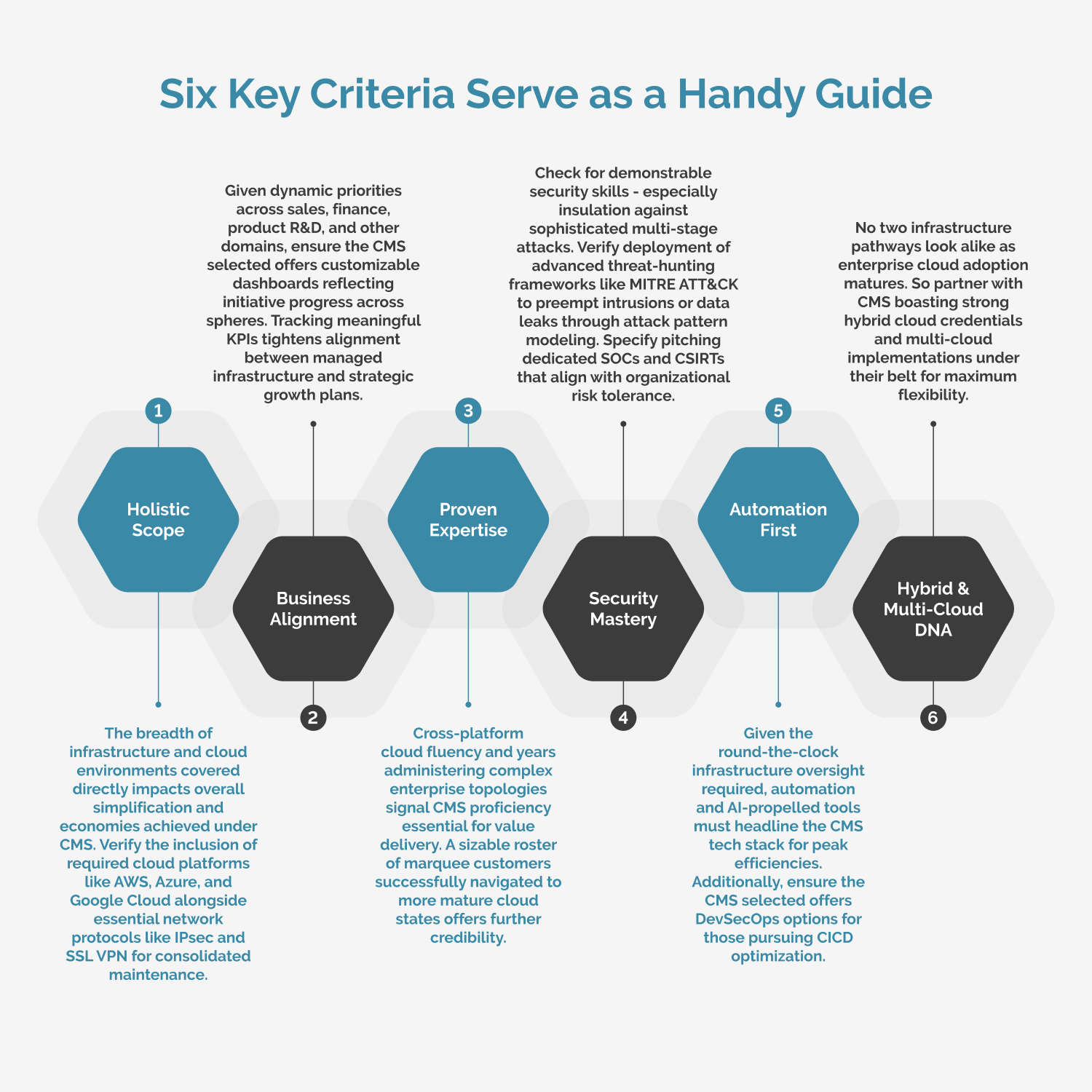
While assessing CMS partners, validate technical abilities against current infrastructure objectives and desired business outcomes. With the six pillars above as north star, technology leaders can confidently turbo-charge their transformation programs through a future-proof CMS partnership underpinned by a robust vision.
The Road Ahead – New Horizons Beckon
As dynamic disruption becomes a mainstay across every industry, storm readiness must take priority. Future gazing CXOs recognize cloud managed services as a secret weapon for steeling and scaling their organizations amid unrelenting uncertainty.
On embarking on the managed services roadmap, always maintain a sharp vision across these key milestones:
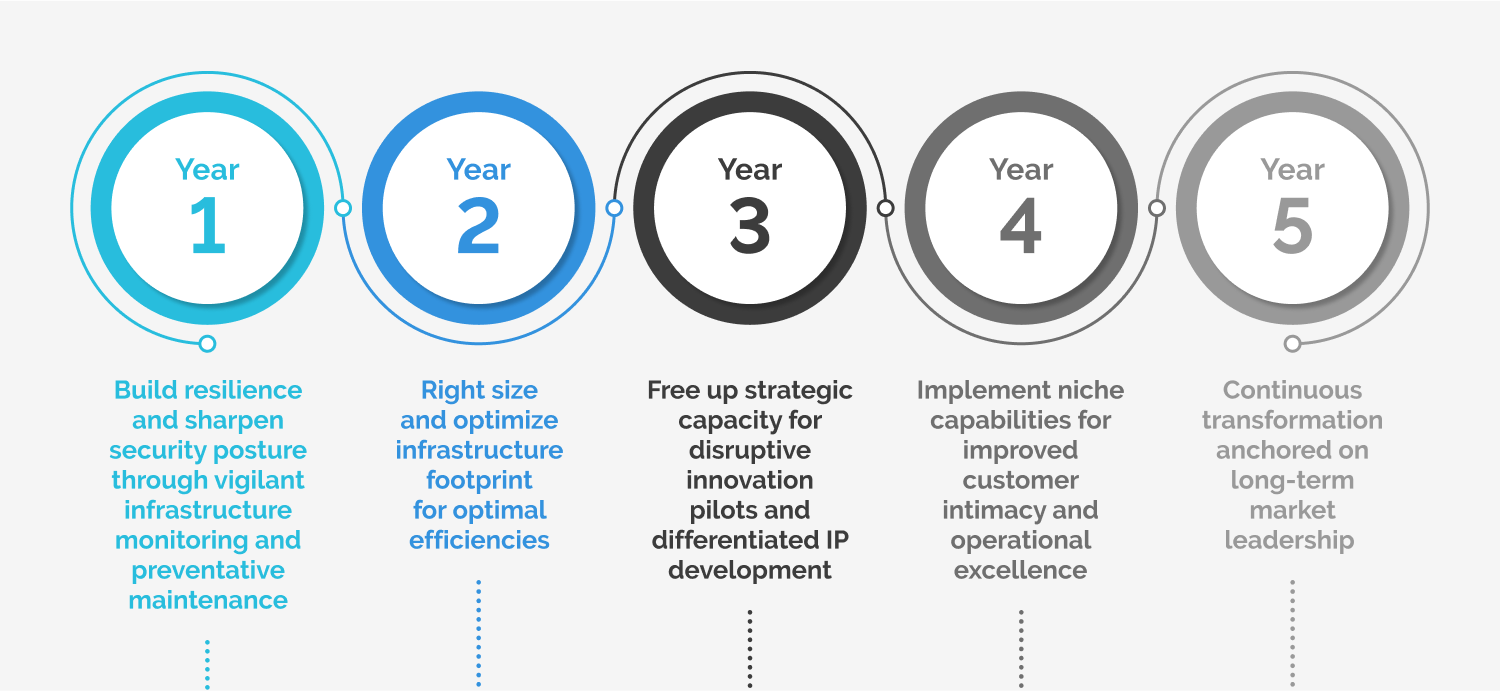
For enterprises yet to explore managed services, the window of opportunity remains open…but not for long! As cloud complexity mounts and skill gaps widen, dedicated partners become mandatory for sustainable success – not optional accessories.
The writing is clear on the wall for laggards still grappling with DYI infrastructure management: migrate to CMS or risk extinction! In the digital order ahead, infrastructure management presents binary outcomes for enterprises – either a dangerous distraction or a potent springboard to success. Savvy leaders must therefore make an affirmative choice!
Conclusion: AWS Partner Trantor – Your Cloud Managed Services Sherpa
As the pace of change intensifies across industries, partnering with an experienced and high-caliber CMS provider is no longer optional – it’s imperative! With over 60% of enterprises already leveraging cloud managed services, the writing is on the wall: migrate to CMS or risk business extinction.
This is where Trantor, an AWS Partner, helps enterprises ascend to cloud success. With skills honed over years of complex AWS customer engagements, Trantor eliminates cloud complexity while unlocking innovation through holistic and secure CMS solutions.
Whether optimizing costs via usage analytics or repelling threats with predictive safeguards, Trantor provides the managed services edge for sustained competitive advantage. As cloud architectures mature, partner with Trantor to navigate the turbulent skies ahead while unlocking new value for the modern enterprise!
